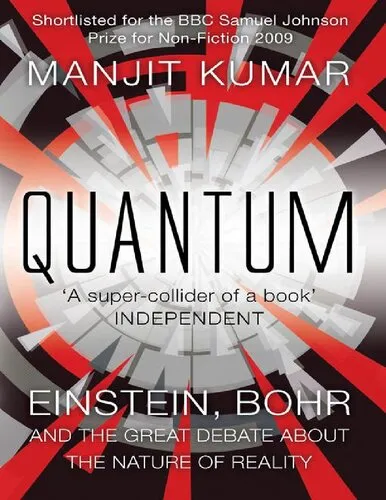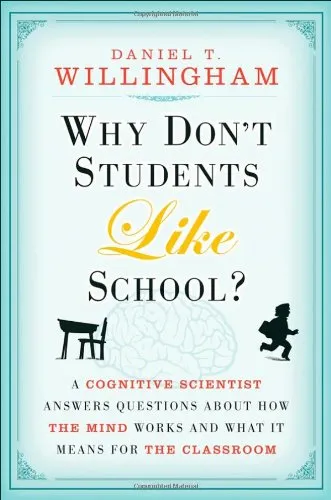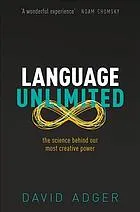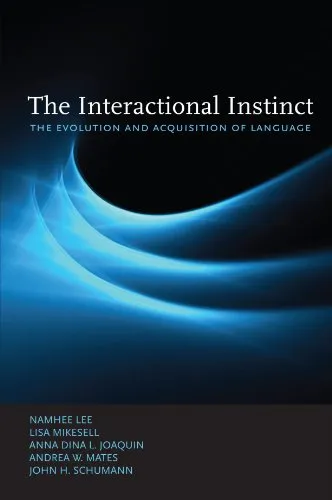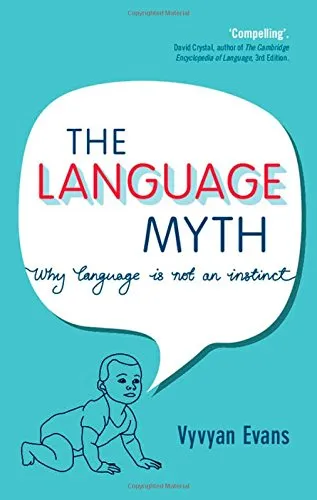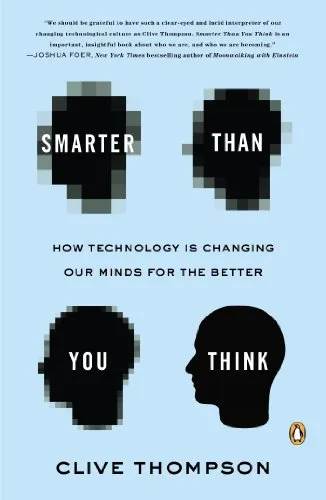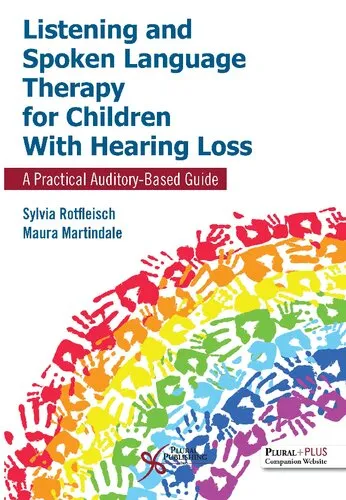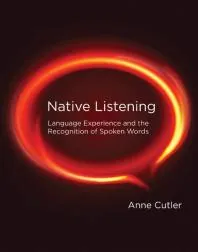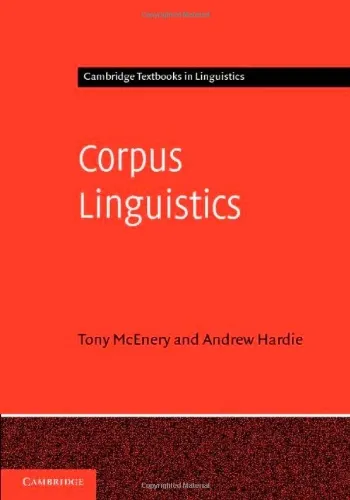The 'Language Instinct' Debate
4.0
بر اساس نظر کاربران

شما میتونید سوالاتتون در باره کتاب رو از هوش مصنوعیش بعد از ورود بپرسید
هر دانلود یا پرسش از هوش مصنوعی 2 امتیاز لازم دارد، برای بدست آوردن امتیاز رایگان، به صفحه ی راهنمای امتیازات سر بزنید و یک سری کار ارزشمند انجام بدینکتاب های مرتبط:
معرفی کتاب 'The "Language Instinct" Debate'
کتاب The "Language Instinct" Debate اثری است که به یک چالش اساسی در زمینه زبانشناسی و علوم شناختی میپردازد. این کتاب توسط جفری سمپسون به نگارش درآمده است و در آن دیدگاههای مطرحشده توسط استیون پینکر در کتاب مشهور خود The Language Instinct مورد ارزیابی و نقد عمیق قرار میگیرد. سمپسون بهعنوان یک زبانشناس برجسته از زاویه دید متفاوتی به موضوع توانایی زبانی انسان و چگونگی شکلگیری آن مینگرد. در این کتاب، سوالهای بنیادینی درباره طبیعت زبان، نقش ژنتیک و محیط در یادگیری زبان و همچنین فرضیه Universal Grammar مورد بررسی دقیق قرار میگیرد.
خلاصهای جامع از کتاب
کتاب The "Language Instinct" Debate به طور خاص به نقد این ایده میپردازد که زبان یک ویژگی غریزی و ذاتی انسان است. استیون پینکر در کتاب خود استدلال میکند که انسانها با یک "instinct" یا توانایی زبانآموزی ذاتی به دنیا میآیند، که توسط رویکردهای زبانشناسی نوآم چامسکی تقویت شده است. جفری سمپسون، در مقابل، این نظریه را به چالش کشیده و تلاش میکند تا نشان دهد که شواهد موجود از چنین نظریهای پشتیبانی نمیکنند.
سمپسون در این کتاب از دادههای تجربی و همچنین استدلالهای فلسفی و نظری استفاده میکند تا نشان دهد که زبان بیشتر یک پدیده فرهنگی و اجتماعی است تا یک ویژگی صرفاً زیستشناختی. او معتقد است که زبان اصلیترین وجه تمایز انسان از سایر موجودات است، اما این تمایز بیشتر ناشی از یادگیری و تعامل اجتماعی است تا کدنویسی ژنتیکی خاص در DNA انسان.
نکات کلیدی کتاب
- نقد مستقیم دیدگاه "زبان بهعنوان یک غریزه" که توسط پینکر و پیروان نظریه Chomskyan ارائه شده است.
- بررسی دقیق نقش محیط و آموزش در یادگیری زبان.
- تحلیل دیدگاههای مدرن علیه فرضیه Universal Grammar.
- تاکید بر این نکته که زبان، فراتر از علم زیستشناختی، یک محصول پیچیده اجتماعی است.
"فرضیه Universal Grammar نه تنها به لحاظ نظری ضعیف است بلکه شواهد تجربی کمی نیز برای پشتیبانی از آن وجود دارد."
چرا این کتاب مهم است؟
"فرضیه Universal Grammar نه تنها به لحاظ نظری ضعیف است بلکه شواهد تجربی کمی نیز برای پشتیبانی از آن وجود دارد."
اهمیت کتاب The "Language Instinct" Debate در مواجهه آن با یکی از تاثیرگذارترین ایدهها در علوم شناختی و زبانشناسی مدرن است. نظریه چامسکی و دیدگاههای پینکر درباره زبان غریزی، بدون شک در شکلگیری پژوهشهای زبانشناسی نقش مهمی داشتهاند. با این حال، سمپسون در این کتاب نشان میدهد که این ایدهها تا چه حد میتوانند از منظر علمی و تجربی مورد انتقاد قرار گیرند.
این کتاب هم برای زبانشناسان، هم برای دانشجویان علوم شناختی و همچنین برای علاقهمندان به مسئله ذهن و زبان حائز اهمیت است. سمپسون با نگارشی جذاب و ارائه شواهد گوناگون، خوانندگان را دعوت میکند که در مورد دیدگاههای غالب زبانشناسی بیشتر تفکر کنند و از زاویه دیگری به موضوع نگاه کنند.
Introduction to 'The 'Language Instinct' Debate'
Language has always been a captivating and mystifying phenomenon, leading to countless debates about how humans acquire and use this essential skill. Geoffrey Sampson’s The 'Language Instinct' Debate boldly challenges the established narrative promoted by linguists like Steven Pinker, who argue that language is an innate, biological instinct encoded in the human mind. This book explores the intricate depths of linguistics and cognitive science, urging readers to rethink the nature of language acquisition and its relationship with human development. In an engaging yet critical tone, Sampson systematically unravels the assumptions of the "language instinct" theory, offering a fresh and compelling alternative perspective.
Summary of the Book
At its core, The 'Language Instinct' Debate is a critique of the widely-recognized hypothesis that humans are born with an innate capacity for language. This idea, popularized by figures like Noam Chomsky and later expanded upon by Steven Pinker in his book The Language Instinct, suggests that humans possess a "universal grammar" hardwired into their brains.
Geoffrey Sampson systematically deconstructs this theory by analyzing decades of linguistic, psychological, and sociological evidence. He argues that language is not an instinctive ability but instead a learned behavior shaped by environmental, cultural, and social factors. Drawing upon examples from real-world linguistics and detailed logical reasoning, Sampson challenges the reader to reconsider the relationship between nature and nurture in human language development.
Through rigorous argumentation, Sampson introduces his counterproposal that language is a product of general cognitive processes and human interaction, rather than being a biologically predetermined trait. In doing so, he calls attention to the methodological flaws and overly-reductive reasoning found in the language instinct theory.
With clear and persuasive writing, Sampson invites readers to question long-held beliefs about language and to engage in a skeptical yet open-minded evaluation of what makes humans uniquely communicative beings.
Key Takeaways
- Language is not an innate biological instinct but a learned behavior shaped by human experience.
- The idea of a universal grammar lacks sufficient empirical evidence and faces substantial methodological critiques.
- Human cognitive processes and social environments play critical roles in facilitating language acquisition.
- Scientific theories, including those about language, should be rigorously questioned and revised in light of new evidence.
- Sampson’s alternative framework opens doors to new ways of understanding the dynamic and flexible nature of human communication.
Famous Quotes from the Book
"Language is mankind’s most astounding invention—not because it is innate, but precisely because it is learned."
"The truth of linguistics lies not in our biology, but in our unique ability to adapt to culture and environment."
"The beauty of language emerges from its complexity, variability, and susceptibility to change – a human hallmark, not a biological reflex."
Why This Book Matters
The 'Language Instinct' Debate holds significant importance in the field of linguistics and beyond. By challenging the dominant paradigm of language as an innate instinct, Geoffrey Sampson encourages readers, researchers, and linguists to adopt a more nuanced and evidence-based perspective. This book serves as a reminder of the value of critical thinking and skepticism in scientific inquiry.
Additionally, it highlights the role of culture, socialization, and human creativity in shaping language, offering a humanistic perspective that resonates with educators, policymakers, and scholars alike. Sampson’s work has sparked serious dialogues within the academic community, pushing the boundaries of how language theory is understood and applied in practice.
For anyone interested in linguistics, cognitive science, or the philosophy of science, The 'Language Instinct' Debate is a must-read. It challenges conventional thinking, ignites intellectual curiosity, and ultimately deepens our appreciation for the remarkable human capacity for language.
دانلود رایگان مستقیم
شما میتونید سوالاتتون در باره کتاب رو از هوش مصنوعیش بعد از ورود بپرسید
دسترسی به کتابها از طریق پلتفرمهای قانونی و کتابخانههای عمومی نه تنها از حقوق نویسندگان و ناشران حمایت میکند، بلکه به پایداری فرهنگ کتابخوانی نیز کمک میرساند. پیش از دانلود، لحظهای به بررسی این گزینهها فکر کنید.
این کتاب رو در پلتفرم های دیگه ببینید
WorldCat به شما کمک میکنه تا کتاب ها رو در کتابخانه های سراسر دنیا پیدا کنید
امتیازها، نظرات تخصصی و صحبت ها درباره کتاب را در Goodreads ببینید
کتابهای کمیاب یا دست دوم را در AbeBooks پیدا کنید و بخرید
1400
بازدید4.0
امتیاز0
نظر98%
رضایتنظرات:
4.0
بر اساس 0 نظر کاربران
Questions & Answers
Ask questions about this book or help others by answering
No questions yet. Be the first to ask!




